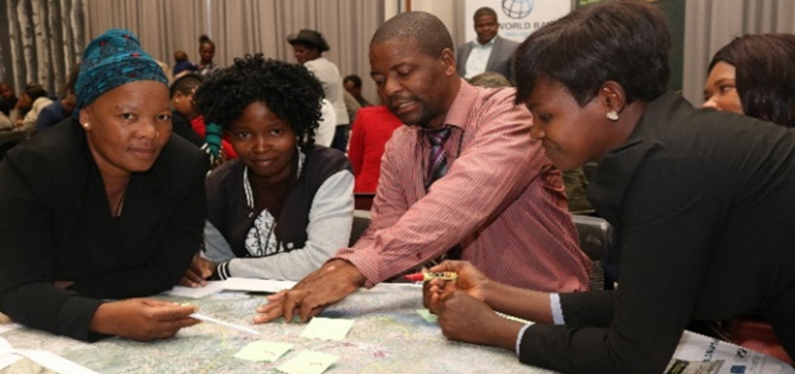The government of Eswatini has sought to reduce the country’s vulnerability to droughts and their socioeconomic consequences, as they recurrently threaten national food and water security and regularly compromise the livelihoods of the rural poor. The government’s National Disaster Management Agency (NDMA), with support from the ACP-EU NDRR Program, is working to develop sustained resilience to droughts, through activities such as improving early warning systems, introducing risk insurance mechanisms, identifying vulnerabilities in the country’s agricultural, water, health, and education sectors, and encouraging knowledge sharing through workshops and publications.
The NDMA hosted a series of workshops on 4-11 February 2020, aimed at strengthening Eswatini’s institutional capacities and understanding of drought preparedness and Disaster Risk Management (DRM). The workshop on “Drought Contingency Planning” focused on providing local government entities with tools to identify vulnerabilities and measures that can be taken to mitigate drought impacts. The “Crisis and Disaster Risk Financing” workshop trained participants on the principles of disaster risk financing and to understand how the government could use financing instruments to fund disaster response. The workshop on “Drought Monitor Validation and Impact Reporting” introduced participants to the Composite Drought Index for Eswatini, an early warning system. Finally, the “Drought Monitor Technical Training” was held for government technical specialists on map composition and IT issues with the Composite Drought Index. These workshops were greatly appreciated by participants, who gained first-hand experience with different aspects of DRM and understood the need to disseminate this new knowledge to their own communities for maximal impact. These workshops were attended by a total of 290 participants, representing institutions from the Kingdom of Eswatini including the NDMA, the Deputy Prime Minister’s Office, the Ministry of Economic Planning and Development, the Ministry of Housing and Urban Development, the Ministry of Finance, the Ministry of Public Works and Transport, the Ministry of Natural Resources and Energy, the Ministry of Health, the University of Eswatini, the Central Bank of Eswatini, and the Baphalali Red Cross Society.
More information on the Eswatini Drought Preparedness project can be found here.




